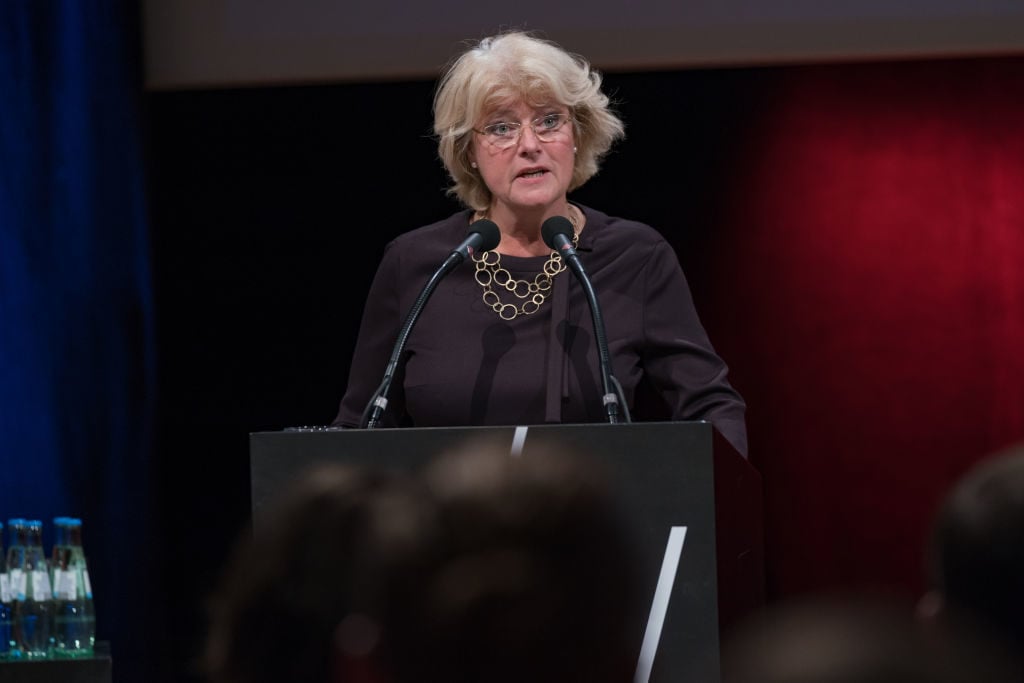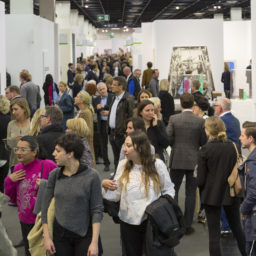As nations around the globe struggle to fight the spread of coronavirus and brace for the economic fallout, Germany is already taking an extra step: the country’s culture ministry has pledged financial assistance to arts institutions and creatives who are facing uncertainty amid a fall in tourism and restrictions on large gatherings and events.
“I am aware that this situation places a great burden on the cultural and creative industries and can cause considerable distress, especially for smaller institutions and independent artists,” the minister of state for culture Monika Grütters said in a statement.
As of tomorrow, Berlin has announced it will close all cultural institutions until at least April 19.
It is not yet clear what kind of support package will be provided, though she said the government has the sector’s “concerns” in mind and will take them into account when it comes to “liquidity assistance.” She has recommended that the federal government host officials from the arts and cultural sectors for talks on aid measures.
In the meantime, Grütters recommended that cultural institutions cancel larger events and consider whether small events are justifiable on a case-by-case basis. She said the government “recognize[s] that culture is not only a luxury one indulges in during good times” and that arts events and gatherings will certainly be missed.
For now, public museums in Germany remain open, though major public programs have been cancelled. Grütters warned that more austere measures—like those taken in Italy, Spain, and Austria, where public museums have been shuttered until further notice—may come to pass in Germany.
So far, Germany has 1,900 confirmed cases of COVID-19 and three fatalities. Chancellor Angela Merkel said that 60 to 70 percent of the population could contract the disease. Speaking at a press conference Wednesday, she said that border closures would not prevent the spread of the virus and ruled out banning visitors from Italy: “This is a test for our solidarity, our common sense, and care for each other.”
Germany’s foremost art-market events, Berlin Gallery Weekend (scheduled for May 1–3) and Art Cologne (scheduled for April 23–26), are currently proceeding as scheduled. However, Berlin Gallery Weekend has stated that its major public events for VIPs will be delayed until a one-off edition in September. Art Cologne is going ahead despite the fact that, as of press time, 900 of the 1,900 cases in Germany are in its surrounding region.
Berlin has shuttered theaters, state operas, and concert halls until further notice. Many clubs—including hotspot Berghain—are closed until mid-April.
Addressing artists and cultural institutions, Grütters offered a note of reassurance. “I won’t let them down!” she said. “We have their concerns in mind and will work to ensure that the special needs of the cultural sector and creative people are taken into account when it comes to support measures and liquidity assistance.”
Germany is not the only region to consider providing relief to small businesses and individuals, including those in the arts and culture sector, whose livelihoods have been challenged by the pandemic. New York City galleries may be among the small businesses eligible to receive interest-free loans and cash grants from the city government if they can demonstrate their sales have decreased by 25 percent or more since the outbreak.
“We must react to hardships and emergencies for which we are not responsible and compensate them,” Grütters said. “This must be worth it not only for the economy, but also for our cultural landscape, which has been badly affected by the cancellations.”









